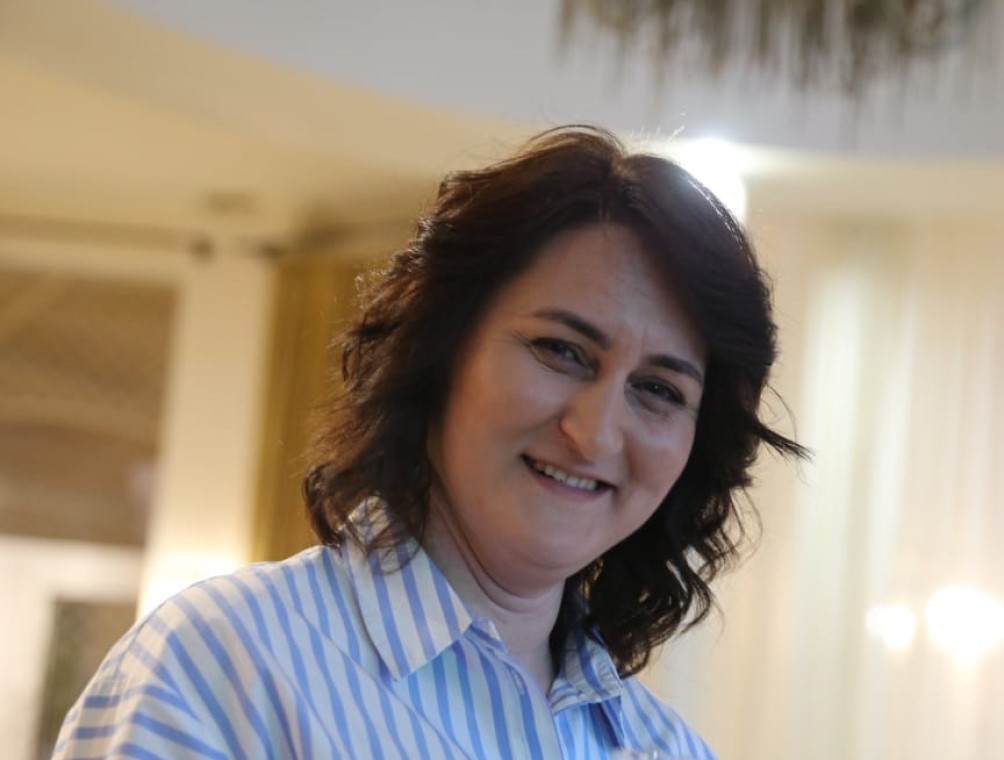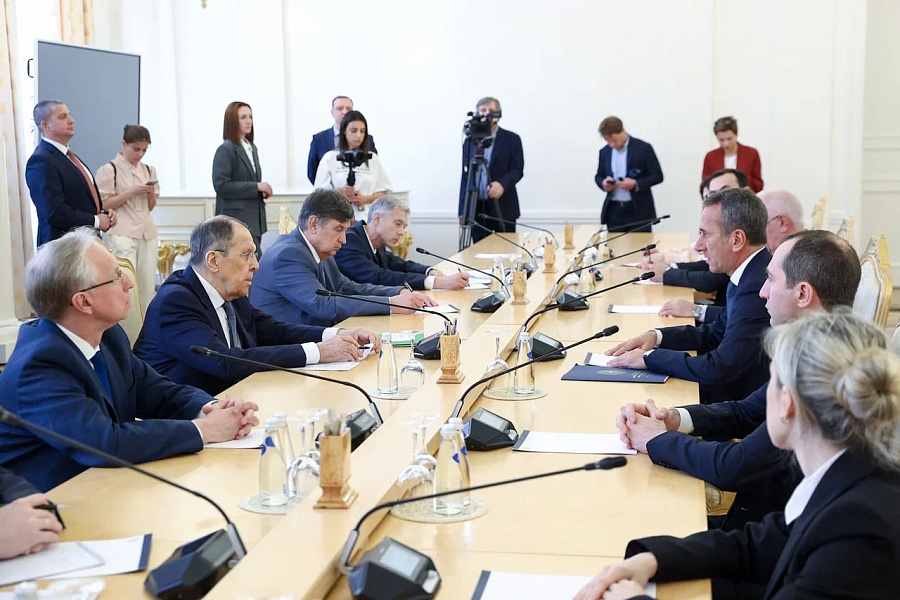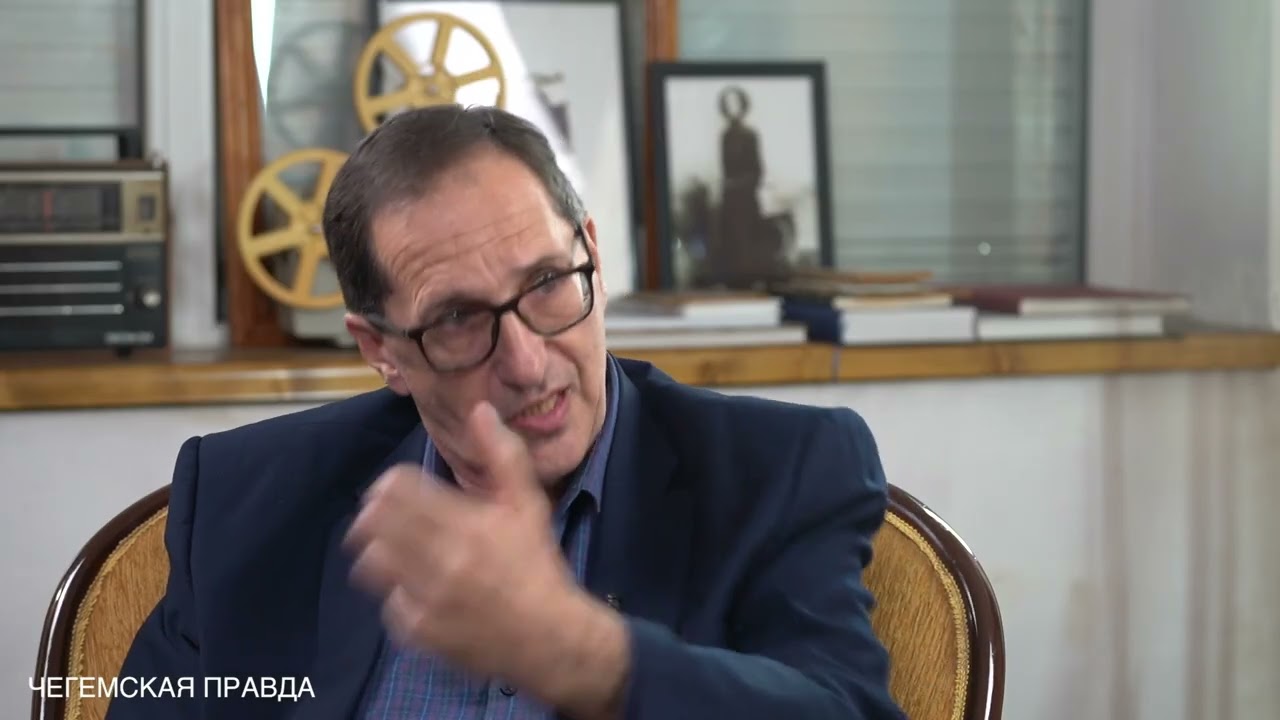Conflicts in the Caucasus
Social Justice Centre published an interview with Valery Dzutsati, Visiting Assistant Professor of Practice in the School of Anthropology, Political Science, and Sociology at Southern Illinois University – Carbondale. Originally from Vladikavkaz, North Ossetia, Russia, Dr Dzutsati has been researching civil and interstate conflicts, democratization, collective action, religion and politics, and methods with an empirical focus on Eurasia and Central/Eastern Europe.
SJC: First of all, we would like to ask you about your perspectives about the reasons of the conflicts in the South Caucasus region and especially in South Ossetia/Tskhinvali region and Abkhazia. How do you interpret the systemic reasons and root causes of these conflicts? One of the explanations is about Soviet nationalism and Soviet ethno-federalism that strengthened ethnic identities. Another explanation is that after the collapse of the system it was not predictable how the resources would be distributed between the center and periphery and it was the struggle of the elites for the influences and the power. Or maybe there are other perspectives you can share with us?
Valery Dzutsati: It is a very big question and the answer is multidimensional. What I mean by dimensions is that, for example historical dimension, which is one of the best predictors of what will happen in the future. So history is one dimension. But there are also very obvious political moves that led to the conflict, like legal moves: in the last years of the Soviet Union Gorbachev gave the autonomous regions the right to decide separately whether they want to stay in the Soviet Union or not.
Georgia was one of the target republics, but perhaps the biggest target for that move was the Russian Soviet Federated Socialist Republic. So you are an autonomous republic or oblast and you decide whether you want to leave the USSR or not. Of course it did not work on Russia, because Russia to a large extent was the Soviet Union, it was the core state of the Union, but it did work on Georgia in a sense that the two autonomous regions took this opportunity. Of course they would.
Svante Cornell was one of the proponents of seeing autonomy as inherently negative – if you want to break up a state you create autonomies and then those autonomies basically break up that state
With regard to autonomy, the current state of affairs in social sciences is that there is no one single opinion about the role of autonomy in the emergence of conflicts. Svante Cornell was one of the proponents of seeing autonomy as inherently negative – if you want to break up a state you create autonomies and then those autonomies basically break up that state, so that’s one view. But there are also other views that autonomy helps in power sharing schemes, helps to bring peace and so on.
You mentioned an interesting aspect – the elites, and this is something that usually is overlooked not in social sciences – in social sciences there is quite a bit of research on the elites, – but in the mass media, in the countries of the former Soviet Union. We don’t know exactly what the elites were doing at that time, what they were thinking and why they decided this and that. I in particular work on a theory which is called Diversionary War Theory, again it’s not a very new theory, it’s at least 30 years old. And Diversionary War Theory says that unpopular rulers start interstate wars in order to cause the rally-around-the-flag effect and stay in power, increase their popularity by engaging in wars and it applies to many countries including the US.
When large chunks of state property were privatized, it was convenient for the elites to distract their populations using nationalist conflicts.
For example, there has been at least one article that tied strikes on foreign terrorist networks and Bill Clinton administrations to hearings in Congress on his impeachment, so that just before the hearings, there will be strikes so that he gets kind of better standing in Congress. But not only in the US, this theory applies to other places too. So a sub-theory of this applies to domestic conflicts. The theory says that instead of launching interstate wars the unpopular ruler can actually target domestic groups because it’s safer. It’s very dangerous to start an interstate war while targeting domestic groups is cheaper, safer, because it’s a domestic affair.
After the breakup of the Soviet Union large chunks of property were appropriated by very small groups and that applied pretty much everywhere in the former Soviet Union countries. And so, remember, the Soviet Union was a fairly egalitarian society in the sense that everybody was equally poor. There were, of course, elites in the USSR, too, but they were not distinguished by having a lot of property. When large chunks of state property were privatized, it was convenient for the elites to distract their populations using nationalist conflicts.
The struggle for territory is something that always sells well.
That’s another potential theory that could help us understand what happened then. I would not venture to say that only one of these explanations is true and nothing else matters, because social reality is very complex. But, I like this diversionary war theory – you are an unpopular leader, you start some war and you immediately gain popularity after that, I mean it appeals to everybody, Georgians, Azeris, Americans, everybody. So the struggle for territory is something that always sells well.
SJC: What can you say about the Ossetian nationalism? We have South Ossetia and North Ossetia and from Tbilisi’s perspective, and not only, South Ossetians are interested in integrating with Russia, that’s why their right to self-determination is not considered as legitimate. So, is there another vision on South Ossetian nationalism?
Valery Dzutsati: That’s a good question. Obviously there have been two types of South Ossetia nationalism: one thought to reunite with North Ossetia within Russia and the other to stay apart from Russia and seek recognition as an independent state. And some people switched between those two types along the way.
Well, living in Tskhinvali and being cut off from the larger centers, you might think that everything is possible, so we will become independent, do this or do that, but when you actually get to know Moscow experts, speak to Georgian experts and other experts, you realize eventually that the range of possibilities isn’t that large for a small place like South Ossetia or Tskhinvali region as you call it. What is more realistic: to become recognized by the international community or to become part of Russia?
Capitalism is very interesting, because it feeds nationalism in a way, but at the same time it breaks up these nationalist movements.
Probably the second and a lot of folks in South Ossetia realize that becoming an internationally recognized, independent state is less realistic while joining Russia potentially, if Putin decides, is more realistic. And many in South Ossetia have switched to that kind of view, although not everybody. Many South Ossetians realize that if you are in a limbo obviously you will try to tie yourself to a richer country. This is direct material interest that is another relatively simple, straightforward explanation.
SJC: How this nationalism was changing during the years from after the 1990s to nowadays?
Valery Dzutsati: The process was very similar across the countries: nationalism, nationalist movements and nationalist leaders became replaced with more kind of pragmatic leaders and sometimes with outside help of course, as in Georgia, as in Azerbaijan, Armenia. Capitalism is very interesting, because it feeds nationalism in a way, but at the same time it breaks up these nationalist movements, especially those naive nationalist movements that were common at the end of 1980s and in the beginning of 1990s.
Both in South Ossetia and North Ossetia those movements became less and less important and less popular. But here is one important caveat. South Ossetia became more and more dependent on Russia. Because it received more and more money from Russia, just like the North Caucasus, by the way. and that meant that leaders, both in the North Caucasus and South Ossetia and Abkhazia became less independent. If you receive more and more money, you become more and more dependent on the source of money. This mechanism works really well to control people.
That’s how you acquire control over behavior of people: you give them money, you give them salaries, you control them.
The Russian war in Ukraine has affected the calculations of South Ossetians. Previously, the affiliation with Russia held only benefits for South Ossetia: money, security, prestige, etc. As Russia is seeking more cannon fodder to throw into its war in Ukraine, becoming part of the Moscovite empire starts carrying costs with it. South Ossetians can currently eschew being called up as Russia’s soldiers in Ukraine, but if South Ossetia officially becomes part of Russia, they will have to go and fight for Moscow’s interests whether they want it or not.
SJC: how is the center-periphery relationship between Moscow and The North Caucasus is changing since the last 30 years? And particularly on the background of the war in Ukraine, which is partly about how Moscow views itself as the center.
Valery Dzutsati: Yeah, that’s a good question. It has been changing quite a bit. One big change came of course in 2004 and 2005 when the Russian president abolished direct elections of governors, including the North Caucasus. After the school siege in Beslan, Putin took this opportunity to change the laws and appoint governors. But, it was not the only change.
The big change was when the republics of the North Caucasus started receiving more and more money from Moscow and that’s how you acquire control over behavior of people: you give them money, you give them salaries, you control them, simple. That’s why if you compare the North Caucasus in the 1990s and in the 2000s it’s a very different situation. Because in the 1990s they almost didn’t receive anything or received very little so, they would not obey Moscow, Moscow could not threaten them all the time. Then Russia had a very large influx of oil money, gas, energy money and it worked pretty well for the control of the regions.
Modern Russia has no ideological foundation, it is a personalist regime and therefore when the person goes things will change very drastically.
As for the war in Ukraine, nobody knows how and when this will end. Everybody is hoping, including liberal Russians, for Ukrainian victory as soon as possible. The West doesn’t want to support Ukraine too much because then Putin might use nuclear weapons, and nobody wants to start a nuclear war because of Ukraine or because of any country honestly. But, we have seen that the faith in this regime has been shaken, especially after the latest events with Prigozhin’s involvement. Many people now believe that Putin will not survive in the long run. And because Russia is such a personalist regime if Putin is replaced the system will not stay the same.
Modern Russia has no ideological foundation, it is a personalist regime and therefore when the person goes things will change very drastically. Many people think that Russia might fall apart, but others think it will not fall apart, because Russia still is a relatively homogeneous country. Potentially, I can imagine a situation where the Russians will be fed up with this war. And if they lose Ukraine then they might say: ‘okay, so we lost Ukraine, why do we need the Caucasus?’
Just like in 1991 when Russia and the Central Asian States wanted to stay in the Soviet Union, but when Ukraine said no, Yeltsin said, ‘oh I don’t want to stay with the Central Asians in the same state’. So, a very similar situation might happen after this war. If we can’t have Ukraine then why do we need Chechens and Dagestanis and others? Another breakup of Russia might happen, but again I am a very bad prophet.
SJC: How does that look from the North Ossetia perspective? Would they be okay with this kind of scenario? How do you relate now with the situation in Ukraine?
Valery Dzutsati: People are afraid to speak their mind. Some people I know said they would be really happy with this outcome. There is also some significant proportion of the citizens who are also scared of that potentiality, why? North Ossetia is surrounded by Muslim regions and there is a perception that Muslims will attack them.
One of the biggest obstacles is an external powerful actor: Russia.
There is an experience of conflicts with neighboring regions. Well, there are different opinions, but I think the more this war goes on, the more I feel the people are tired in Russia, in North Ossetia in particular, and want it to be over. I think it could happen that people would be so tired of the war that anything would be better, anything, “Russia is falling apart but it is okay as long as the war will be over”. So we are in a flux situation, it is very difficult to predict what will happen next.
SJC: What are internal discussions in the Ossetian society about the prognosis of the war or fears they have?
Valery Dzutsati: Well, as I said there is a group of people who are really tired of this war and want it to be over. There are also people who support the war efforts. There was a public opinion poll a year ago which showed that the North Caucasus region was the least supportive of the war among all Russian regions.
Maybe it is not so surprising, because the slogans of this war are often rendered in ethnic terms: “Russian world”, “Russky Mir”, etc. And then non-Russians ask themselves: ‘okay so what do we have to do with that’? Yet, many people in the North Caucasus are still supportive of the Russian war in Ukraine.
SJC: Going back to the Georgian context and to the Georgian – South Ossetian relationships, what do you think is the biggest barrier for Georgian-South Ossetian relationships and what is the biggest opportunity for normalization of these relationships?
Valery Dzutsati: Well, one of the biggest obstacles is an external powerful actor: Russia, which can determine South Ossetia’s moves, up until the time Russia says ‘oh, I don’t want to deal with that anymore, I don’t care’. South Ossetia, and Abkhazia too actually, are relatively small, tiny territories, and we are not talking about Russia running out of money.
These two territories are too small to weigh heavily on the Russian budget. We are talking about a political decision. Voluntarily Russia will not give them up unless something happens in the Kremlin. I mean this is like historical thinking, so Russia is very greedy for territories, historically it has been and that’s how you build empires of that size.
The opportunities, I think primarily lie in the economy and I think South Ossetians would be interested to have some sort of economic relationship, but again that’s also an obstacle, because how do you do that if the border is not officially recognized by Georgia? The policy of borderization also creates conflicts. So, I would say it’s a safe bet to pursue economic ties. I remember I went to Ergneti Market in 2005 or 2006, it was very wild, it was semi-legal, but still Ossetian and Georgian traders benefited.


